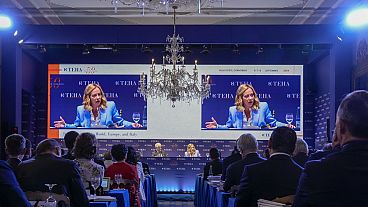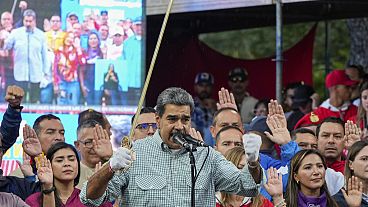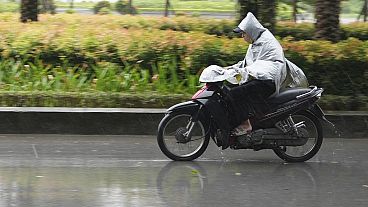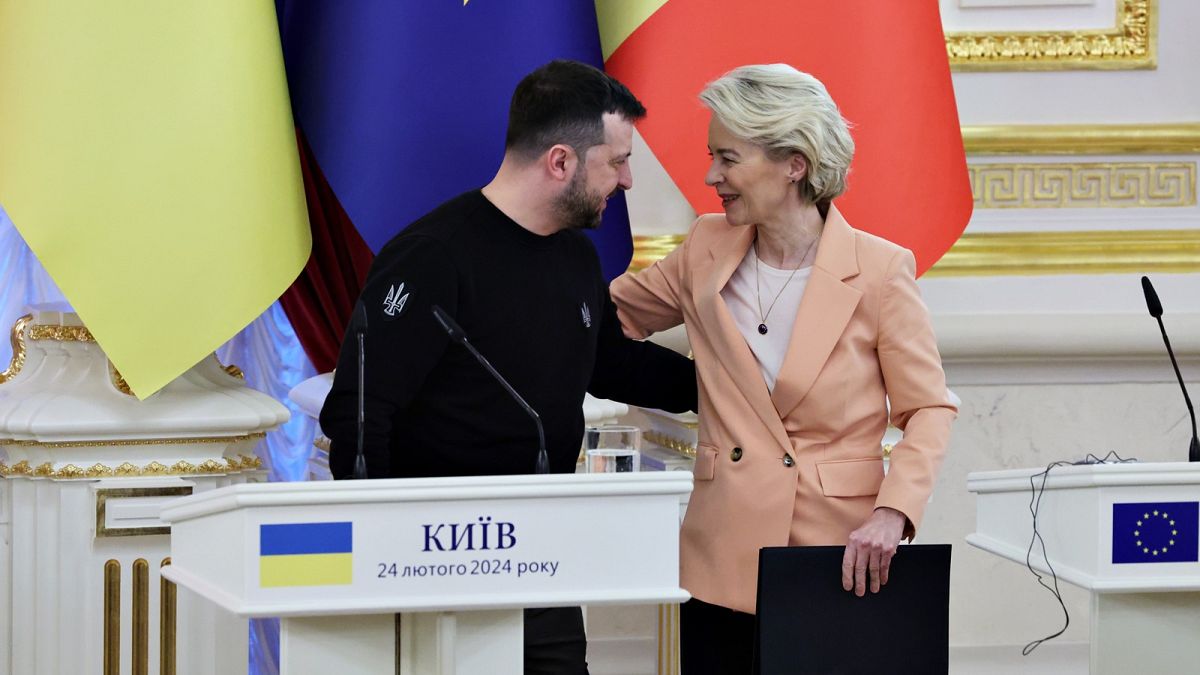The transfer is the first of its kind under the novel scheme based on Russia's immobilised assets, estimated to be worth €210 billion across the bloc.
The European Union has sent €1.5 billion to Ukraine using the extraordinary revenues obtained from the Russian Central Bank's assets that remain immobilised as part of the bloc's far-reaching sanctions.
Ninety per cent of the financial assistance will help Kyiv buy more weapons, ammunition and air defence systems, which the country urgently needs to repel the advances of invading troops in the east. The remaining 10% will contribute to reconstruction efforts, particularly the energy infrastructure, badly damaged by relentless Russian strikes.
Brussels worries that the widespread destruction of Ukraine's power grid could trigger a humanitarian crisis and a new migration exodus come winter.
"The EU stands with Ukraine," European Commission President Ursula von der Leyen said on Friday. "There is no better symbol or use for the Kremlin’s money than to make Ukraine and all of Europe a safer place to live."
The announcement marks the first money transfer under the novel scheme based on Russia's immobilised assets, estimated to be around €210 billion across the bloc. The unprecedented project was many months in the making until member states reached an agreement on the legal texts in May.
Hungary, a vocal opponent of military aid to Ukraine, initially threatened to wield its veto and block the whole initiative. But last month, member states found a legal avenue to circumvent this obstacle, arguing Hungary had abstained from the May agreement and therefore lacked the right to participate in the following steps.
Back then, it was announced the first transfer would be worth €1.4 billion. On Friday, the amount was updated to €1.5 billion, likely due to the variations in interest rates.
The extraordinary revenues, which Moscow is not entitled to obtain due to the sanctions adopted in early 2022, come from Euroclear, a depository located in Brussels that holds the majority of the immobilised assets.
The next transfer will take place in March 2025, the Commission said.
Crucially, the €1.5 billion will be wired directly into Ukraine's budget. This differs from the previous military assistance the bloc has spearheaded under the European Peace Facility (EPF), which partially reimburses member states for the weaponry donated to Kyiv.
The EPF has been blocked by Hungary for more than a year, resulting in the paralysis of €6.5 billion and the exasperation of the other capitals. Earlier this week, Josep Borrell, the EU's foreign policy chief, described the gridlock as "purely shameful."
With hopes of a resolution all but lost, the EU has teamed up with the US to set up a $50 billion loan to Ukraine using the immbolised assets as collateral. The plan is advancing but technical details are still unresolved. The EU renews its sanctions every six months, which means that, if Hungary or somebody else were to prevent the renewal at one point in the future, the assets would be unfrozen and the loan would fall apart.
The Commission has proposed two options to square the circle and ensure greater predictability: the assets will remain permanently immobilised until Russia agrees to compensate Ukraine for damages (an open-ended renewal) or the sanctions on the assets will be renewed for longer periods (for instance, 18 months rather than six).
Discussions on the options are in the early stages and are expected to continue after the summer break. Once again, unanimity will be required.












